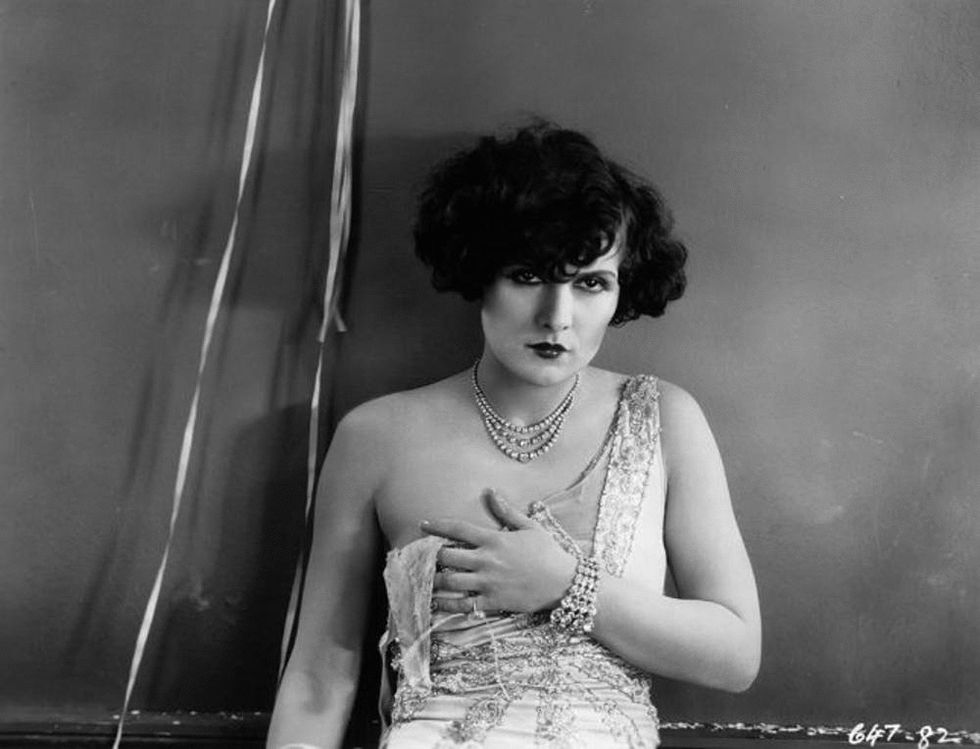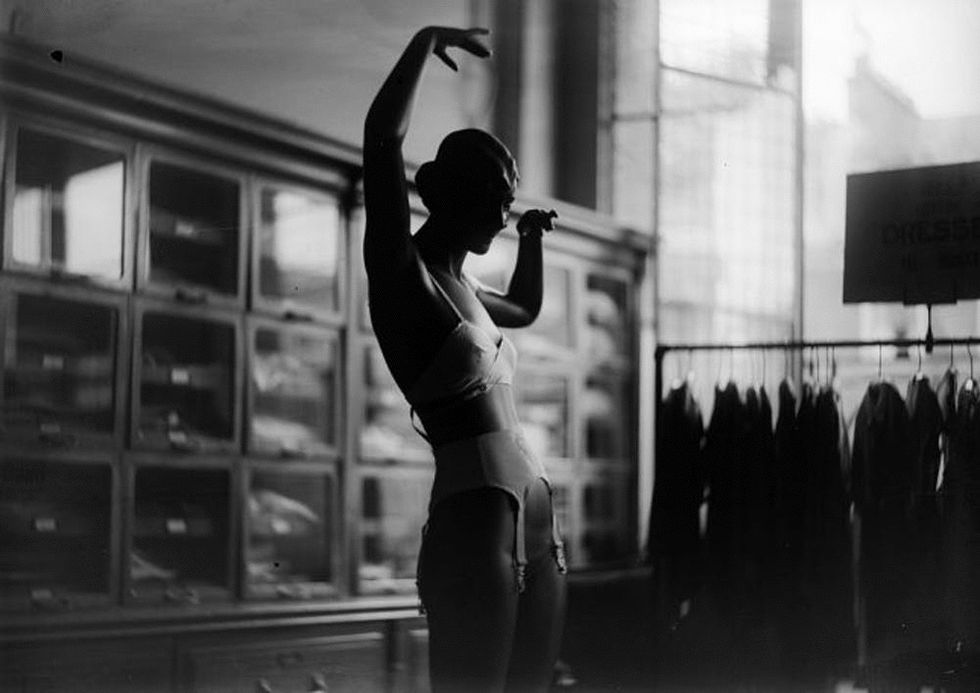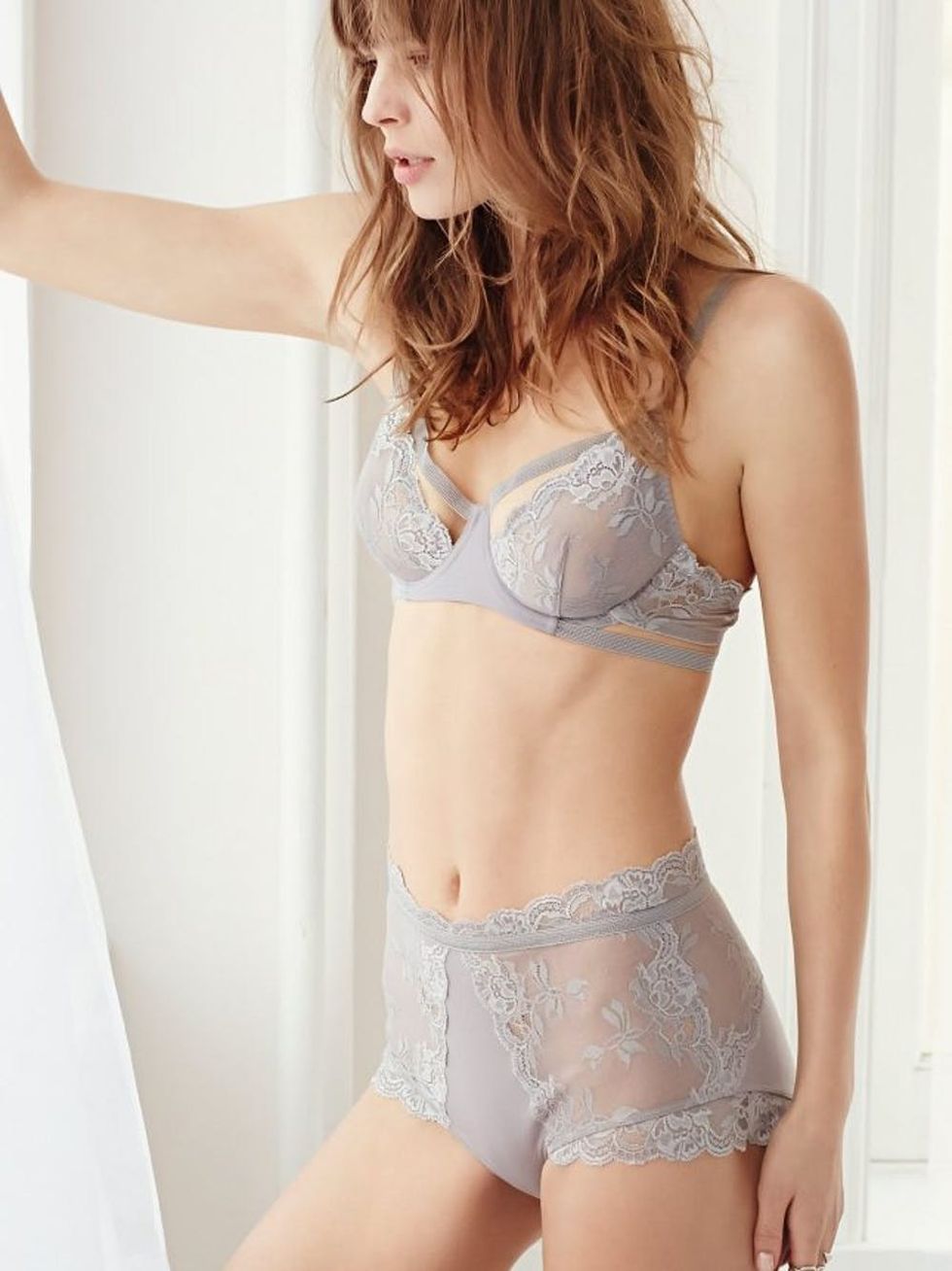When Your Breasts Don’t Feel Like They Belong to You

As pre-teens, most of my friends were thrilled to start wearing bras. They rifled through the racks at Limited Too, eager to wear a flower-printed secret under their shirt each day. For me, this wasn’t the case. I knew what bras were, and what purpose they served, but when it came to wearing one, I felt uncomfortable and exposed.
More often than not, I’d wear a bra to school and take it off in the bathroom. I didn’t like feeling the pink and orange flower-printed fabric against my breasts, hidden beneath my favorite soccer jersey. I was much more comfortable wearing athletic clothes that were sold in the “boys” section of the department store.
While my friends coveted lace bras with underwire, the kind that amplified their chests, I opted for sports bras in hopes of appearing more flat-chested than I actually was.
By high school, I was a little more comfortable with my body and began wearing regular bras (a huge step for 14-year-old me). With this newfound confidence, I began wearing tighter fitting clothing, and shirts with a lower necklines. Still, I wore tank tops underneath my shirts and above my bra to downplay any unwanted attention.

One day, before cheerleading practice, I was walking to the bathroom to change into my practice clothes when a teacher stopped me, grabbed onto the neck of my tank top and pulled it up.
“You need to cover up the cleavage, Shauna,” she said, despite the fact that I didn’t have any cleavage to show.
This became a recurring event in my high school career. Every day, the same teacher would tell me to cover up or would reach into my personal space to cover up my so-called cleavage. So I started wearing baggier clothing — this is where my addiction to rock band T-shirts began.
Throughout the rest of high school, I wore loose-fitting shirts covered with band art. The look helped me avoid any further interactions with my teacher about the dress code, and at the same time, allowed me to express myself through my personal style.
Now, at 24 years old, I’m finally comfortable with my body — specifically my breasts — and my style isn’t dictated by their level of visibility or the fear that some adult will shame me for their mere existence. But recently, an experience sent me back to my high school years.

It was nine in the morning, and I was dressed in a long skirt and a baggy, loose-fitting tank top. For visual reference, the top has a high neckline and doesn’t expose any “cleavage” — not that it should matter if it did.
I was walking down the street with my headphones on, headed to work, when a man approached me, looking confused. I took out my headphones to try to understand him — and that’s when he reached his hand out, and said, “Can I grab your tit?” Before I could stumble backward, he cupped his hand on my right breast.
In a spurt of rage, I grabbed his hand and pushed it back at him. “Absolutely not!” I screamed. “Are you kidding me?”
I hurried away, heart pounding. He called after me, harassing me until I cut the corner down a random street and his voice faded.
As I continued to walk, I felt dirty and uncomfortable, a familiar feeling that I had felt when I was scolded for my breasts in high school.
I was enraged, upset, tearful, but refused to cry over a stranger. I quickly filed a report online and continued the rest of my day at my job.

That afternoon, I decided to walk to the bookstore. As I walked, I became more aware of my breasts. I glanced at strangers, holding their gazes to make sure their eyes weren’t peering at my chest. I felt my breasts move the faster I walked, so I walked slower. I even moved my bag’s strap over one of my breasts in an attempt to hide my chest.
Block by block, I felt the discomfort set in. By the time I arrived at the bookstore, I was drenched in sweat, not because of the New York heat, but because every nerve in my body was pulsing. I ran to the bathroom of the bookstore and hid in a stall until everyone else left the restroom.
Once the stalls were empty, hands shaking, I took off my shirt, then my bra, and tightened the straps way too tightly in an attempt to stop my breasts from moving at all. Suddenly, these two lumps on my chest, two parts of me I couldn’t control, felt foreign to my body.
I stood in the stall shaking, sweating, and uncomfortable. I wanted them off of me. I wanted my breasts to be gone, flattened out completely.
Then I thought of the journey I’d gone through to get to a place where I accepted my breasts as a part of my body. There was the five-year relationship, followed by a breakup that required two years to recover from. There was also a prolonged battle with an eating disorder. I had to learn — through all of this — how to live with and love the body I have. And I did.
I didn’t go through those hard times to be back at square one, hiding out in the stall of a public bathroom. If that stranger hadn’t crossed the line, I would still love my breasts.

Once I calmed down, I ran cold water over my hands, and wiped the sweat off of my forehead, breathing deeply. I realized the problem wasn’t my breasts; the problem was the way they’d been objectified — treated as property that belonged not to me, but others. It was the entitlement others had over my body, specifically my chest, that needed to change. There was nothing wrong with me.
My breasts are beautiful, not because they draw attention from others, but because they are mine. How dare anyone think they have the right to touch, or even cover up, my breasts without my permission.
While the attempted physical assault from a stranger was different from my teacher’s actions, both expressed an entitlement over a part of my body. And in both instances, my body was sexualized in a way that felt wrong.
I’m tired of living in a society where my attitude toward my own body is influenced by other people’s judgments or sense of power over me as a woman. If we want to teach women to love their bodies, we need to start by teaching everyone — men and women — to respect our personal boundaries, regardless of how we dress or how old we are.
So no, sir, you can’t “grab” anything on my body. It’s mine and I respect it — even if you don’t.
(Photos via Hulton Archive / Getty and General Photographic Agency / Getty)



















